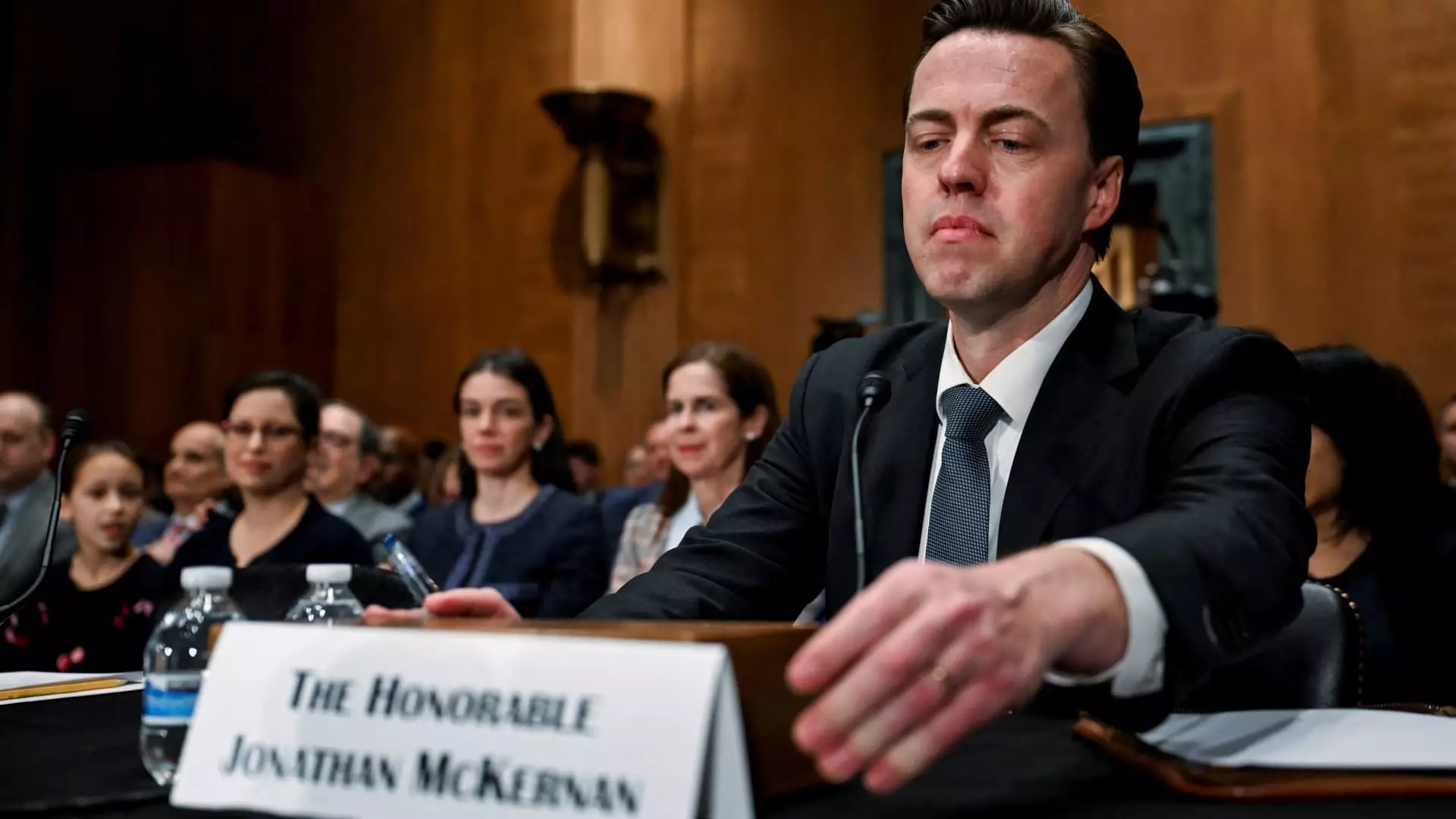The Consumer Financial Protection Bureau (CFPB) has been a focal point of contention within the U.S. financial regulatory landscape since its establishment in the aftermath of the 2008 financial crisis. Recently, the nomination of Jonathan McKernan, a former Federal Deposit Insurance Corporation board member, to lead the agency has garnered significant attention, especially given the context of a politically charged environment. His confirmation hearing revealed a complicated interplay between regulatory oversight, consumer protection, and political maneuvering, raising questions about the future of the agency and its mission.
During the confirmation process, McKernan faced rigorous questioning from Democratic senators, particularly Massachusetts Senator Elizabeth Warren. As he articulated his commitment to the CFPB’s foundational mandate, McKernan stressed his belief in the necessity of a reliable financial regulatory system that serves the interests of everyday Americans. His assertion that he would “fully and faithfully” uphold the laws governing the CFPB was a crucial point of his testimony. This confidence stems from his early legal career, which coincided with the onset of the financial crisis that exposed the vulnerabilities within the financial system. His language reflected an understanding of consumer protection as not merely a regulatory guideline but as a vital component in the restoration of trust in America’s financial institutions.
Nonetheless, McKernan did not shy away from critiquing the agency’s previous leadership under Rohit Chopra, stating that under Chopra’s guidance, the CFPB engaged in practices he deemed politicized and overstepping its legal boundaries. He articulated a need for the CFPB to rectify its approach to regain its legitimacy and efficacy in consumer advocacy. The stark contrast between his vision and Chopra’s administration raises concerns about the agency’s directional shifts and whether it will continue to prioritize consumer protection or fold under political pressures. McKernan’s statements indicate a skepticism regarding the agency’s recent track record, hinting at a potential rollback of prior initiatives that could jeopardize the protections and resources previously available to consumers.
In the background of this discussion looms the uncertainty regarding the CFPB’s operational future. Following the appointment of acting Director Russell Vought, a series of controversial decisions, including the closure of the agency’s Washington headquarters and significant staff layoffs, cast a shadow on the CFPB’s ability to function effectively. Reports asserting that as much as 95% of the CFPB workforce may face termination raise alarms about the bureau’s survival. Critics, including Warren, have pointed to these developments as indicative of a strategy to diminish or even eradicate the agency, suggesting a hostile environment for anyone dedicated to consumer advocacy.
This precarious situation creates a dual challenge for McKernan: navigating the bureaucratic labyrinth of a potentially diminishing agency while also striving to maintain an effective consumer protection framework. The implications of Vought’s actions and the administration’s attitude towards the CFPB suggest that McKernan’s role may be more symbolic than transformational unless a significant cultural shift occurs within the agency.
Moving beyond political rhetoric, McKernan’s vision involves “right-sizing” the CFPB—essentially recalibrating its focus and ensuring accountability to reinforce his commitment to consumer welfare. This ambition, however, is compounded by skepticism regarding his capacity for meaningful change in an agency whose foundational independence appears threatened. Critics worry that any effort to reshape the agency without adequate support from the White House or the Office of Management and Budget may render his leadership implications ineffective.
Senator Jack Reed’s remarks serve as a chilling reminder of the possible futility of McKernan’s nomination if the political will to sustain and elevate the CFPB does not materialize. With the loss of critical infrastructure and the dismissal of pivotal cases against predatory lenders, McKernan must navigate a tightrope of political expectations and operational realism. The CFPB stands at a crossroads: it can either adapt to embrace a new set of challenges or succumb to pressures that diminish its core objective of protecting consumers.
The nomination of Jonathan McKernan reflects the complexity and fraught nature of consumer financial protection in an era of shifting political landscapes and regulatory skepticism. Whether McKernan can elevate the CFPB’s mission amidst encroaching threats remains to be seen. As stakeholders observe closely, the agency’s future will rest on its ability to balance political realities with the dispassionate advocacy required to protect consumers in an increasingly complex financial world. The stakes are high, and the direction McKernan leads the CFPB will likely have lasting implications for America’s financial system and its consumers.

